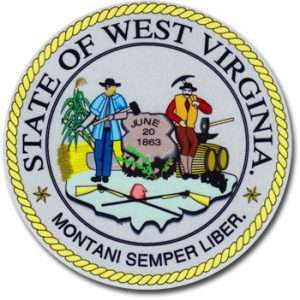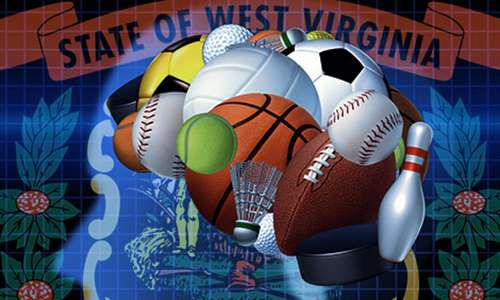Sports Betting Legalized in West Virginia, Governor Wants to Cater to Sports Leagues
Last week, sports betting became legal in West Virginia – legal, that is, pending a potential overturn of a nationwide ban on the activity. Yet despite supporting sports betting, WV Governor Jim Justice oddly tempered his enthusiasm after the bill became law in a sort of, “Hold on guys, I know we all agreed on this, but maybe we were a bit too hasty,” move.
 The bill that eventually became the law, Senate Bill 451, was introduced February 1st. That it passed just a month and a half later was impressive and showed the dedication of lawmakers to get something done. It’s more or less what one would expect from a sports betting bill, allowing the five gambling venues in West Virginia to offer wagering on sporting events. Licenses will cost $100,000 each.
The bill that eventually became the law, Senate Bill 451, was introduced February 1st. That it passed just a month and a half later was impressive and showed the dedication of lawmakers to get something done. It’s more or less what one would expect from a sports betting bill, allowing the five gambling venues in West Virginia to offer wagering on sporting events. Licenses will cost $100,000 each.
Of primary note is that the West Virginia law does not include the “integrity fee” for which the NBA and MLB have been lobbying different state legislatures. The two professional sports leagues want to be given one percent of the total money wagered, which sounds small, but in reality is an insane amount. Gaming law expert Professor I. Nelson Rose showed how the math would work on his blog and the end result is that the one percent of all bets equates to 20-25 percent of a sports book’s profits on those wagers. And that’s before all of the other business expenses. Suffice to say, a one-percent integrity fee could kill sports books.
And while the sports leagues claim that that money will help them ensure the “integrity” of the games aren’t violated, that it will allow them to police things better, it’s all bullshit. It’s just a money grab. The leagues make billions of dollars as it stands already and the more sports betting becomes legal throughout the United States, the more people will be interested in the games. The regulatory environment will be what will help ensure the integrity of the games, not extra money to the leagues.
The bill passed both the West Virginia House and Senate easily and then went to Governor Justice’s desk to be signed. As mentioned, he had supported the effort, but interestingly, he didn’t sign the bill. But since he didn’t veto it, either (it had a veto-proof majority in the legislature, so it would’ve been pointless), it automatically became law after five days.
After Gov. Justice allowed the bill to become law, though, his office issued a short press release in which he said, in essence, “Well, after sports betting becomes legal on the federal level, maybe we should give the leagues that integrity fee.”
Here it is:
Gov. Jim Justice said today that the bill passed by the Legislature (SB451) permitting Sports Wagering will become law.
“After the U.S. Supreme Court issues its decision on sports wagering, to address any provisions of the legislation that might be in conflict, I will ask the Legislature to look at the advantages of partnering with the major sports leagues,” Gov. Justice said. “I believe there could be real value to this partnership. I expect the Supreme Court to rule on this issue in the next few months.
“This approach will allow us to develop a relationship with all the major sports leagues so that it is beneficial to everyone.”
Gov. Justice went on to say that “if there are issues that we can address” and make this “model legislation that the entire country can use and duplicate, we should do so. Again, nothing can happen until the Supreme Court issues their decision, but we want to be ready when they do,” Gov. Justice said.
The leagues have clearly been putting pressure on the Governor, but it is a little strange that he sounds willing to capitulate when there is really no threat if he and the legislature just let the law be. After Governor Justice’s office released its statement, MLB followed with a quick one of its own:
Major League Baseball appreciates the willingness of Governor Justice to correct the significant flaws in the sports betting statue by calling a special session to amend the law. We believe that with the Governor’s leadership, the amended statute will better protect the citizens of West Virginia and the integrity of sports, and also increase revenue for the state in the long run.
The NBA issued a similar press release.
Of course, none of this matters until sports betting is permissible by federal law. What everyone is waiting for is a ruling by the Supreme Court in a case brought by New Jersey, which has been fighting to offer sports betting in its casinos. New Jersey is challenging the Professional and Amateur Sports Protection Act of 1992 (PASPA), which bans sports betting nationwide except in four states that were grandfathered in: Nevada, Montana, Oregon, and Delaware (Nevada is the only one of the four with traditional odds-based wagering). Prevailing opinion is that the Supreme Court will rule in New Jersey’s favor. The fact that MLB and NBA are talking to lawmakers about the integrity fee is a pretty glaring sign that they feel that sports betting will become a reality.



















COMMENTS